Surf CoachingSurf Therapy for People with Acquired Brain Injury
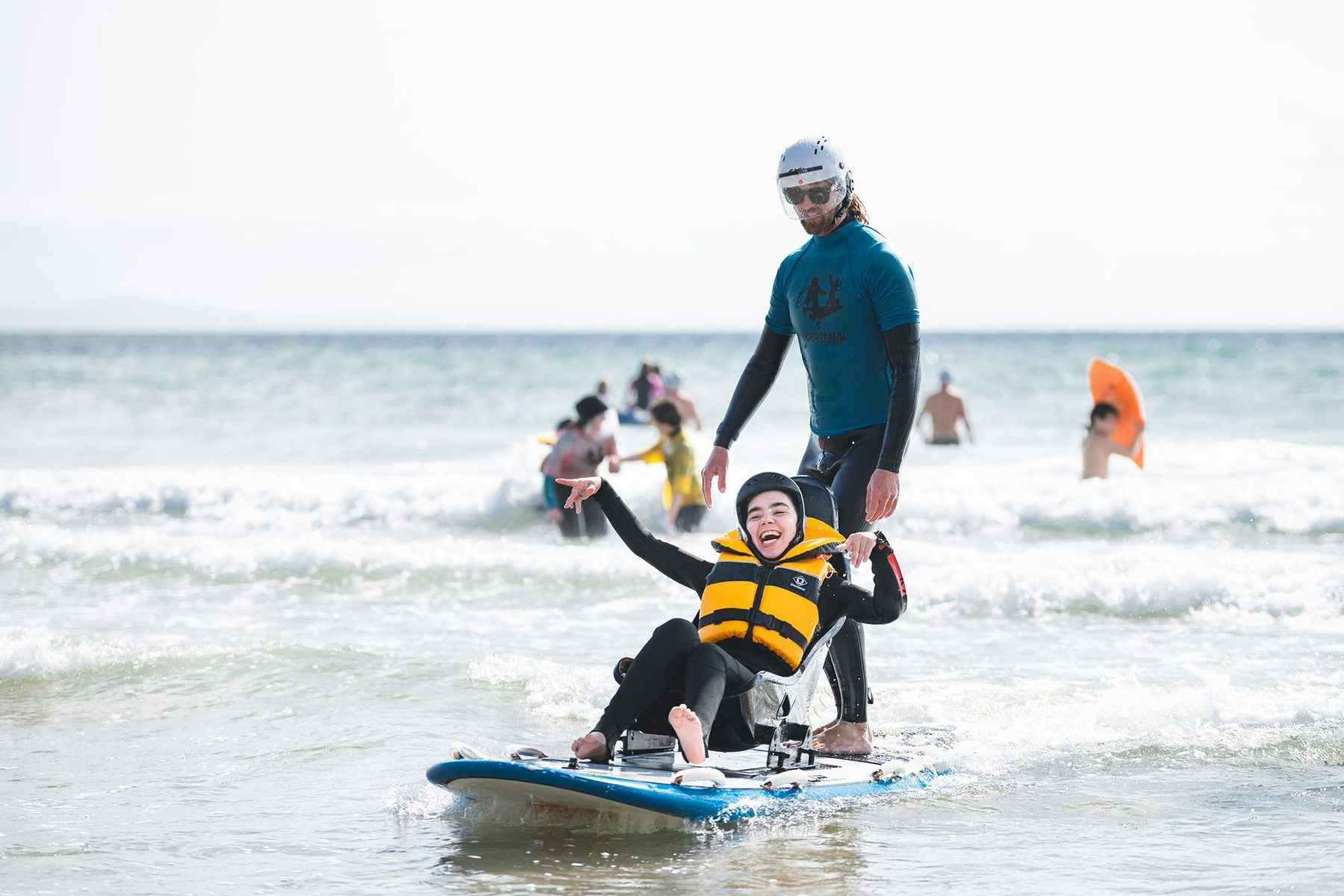
A Welsh Case Study
Acquired brain injury (ABI), a type of brain damage caused by events such as stroke, tumour, or a blow to the head, affects around 1.3 million people in the UK alone. This costs the NHS [National Health Service] roughly 10% of its annual budget, but more importantly, costs the individuals a series of physical, emotional, cognitive, and social limitations. And whilst interventions involving the natural environment – such as surf therapy – are increasingly being tapped into as a mechanism for well-being in various clinical populations, their benefit for neurorehabilitation in ABI has remained, until recently, unexplored.
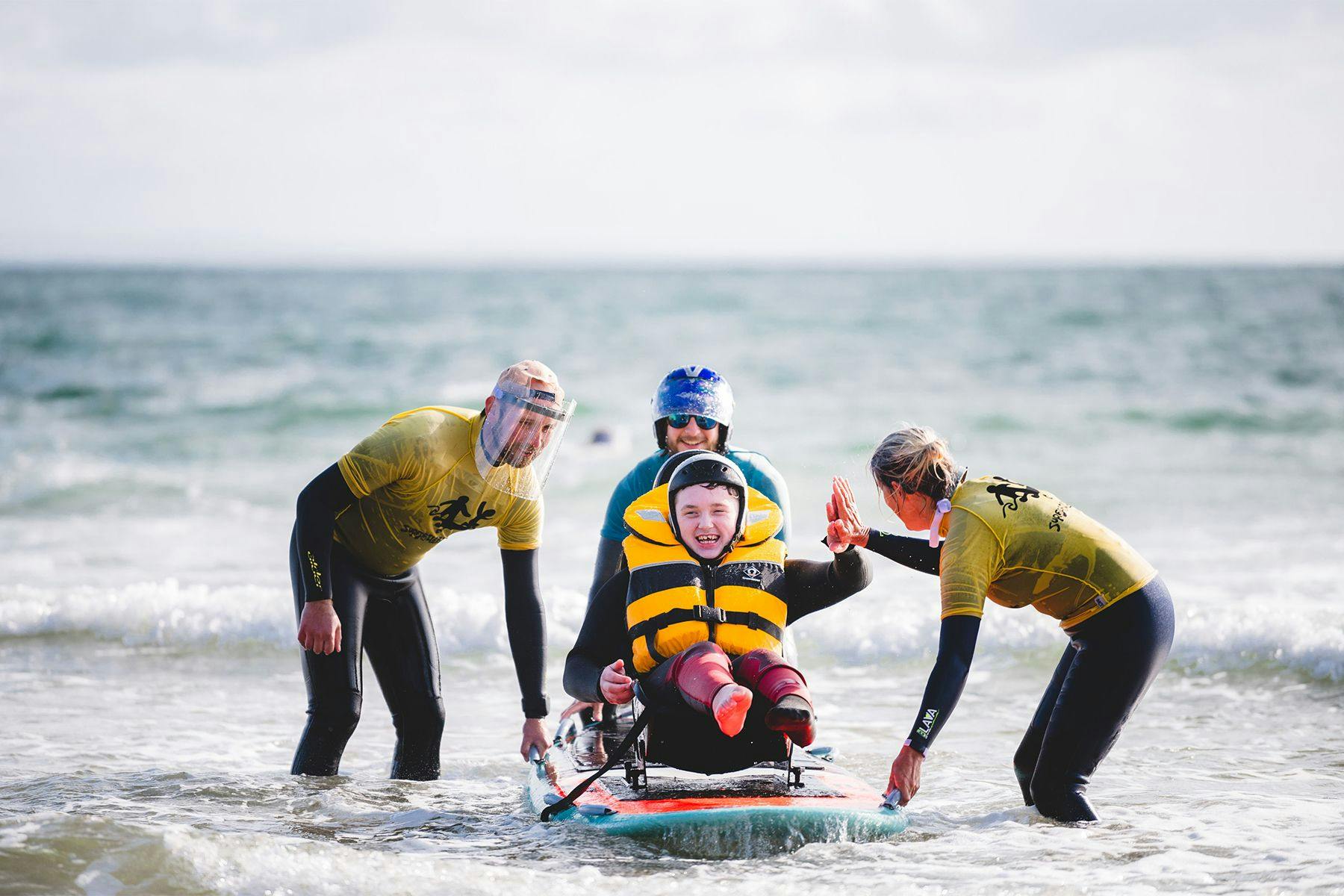
“There’s an overwhelming amount of research to suggest that contact with and how connected we feel to our natural environments can have various beneficial effects on our health, well-being, and functioning,” says Katie Gibbs, lead author in a study that came out of Wales this past April on the benefits of bespoke surfing interventions for people living with ABl. “But nature also provides the space within which our social relationships can be strengthened and the context for engagement in health behaviours like exercise. These outcomes are really useful for anyone – but particularly so for people with ABI, where opportunities for things like social connectedness or engagement in leisure activities are lacking.”
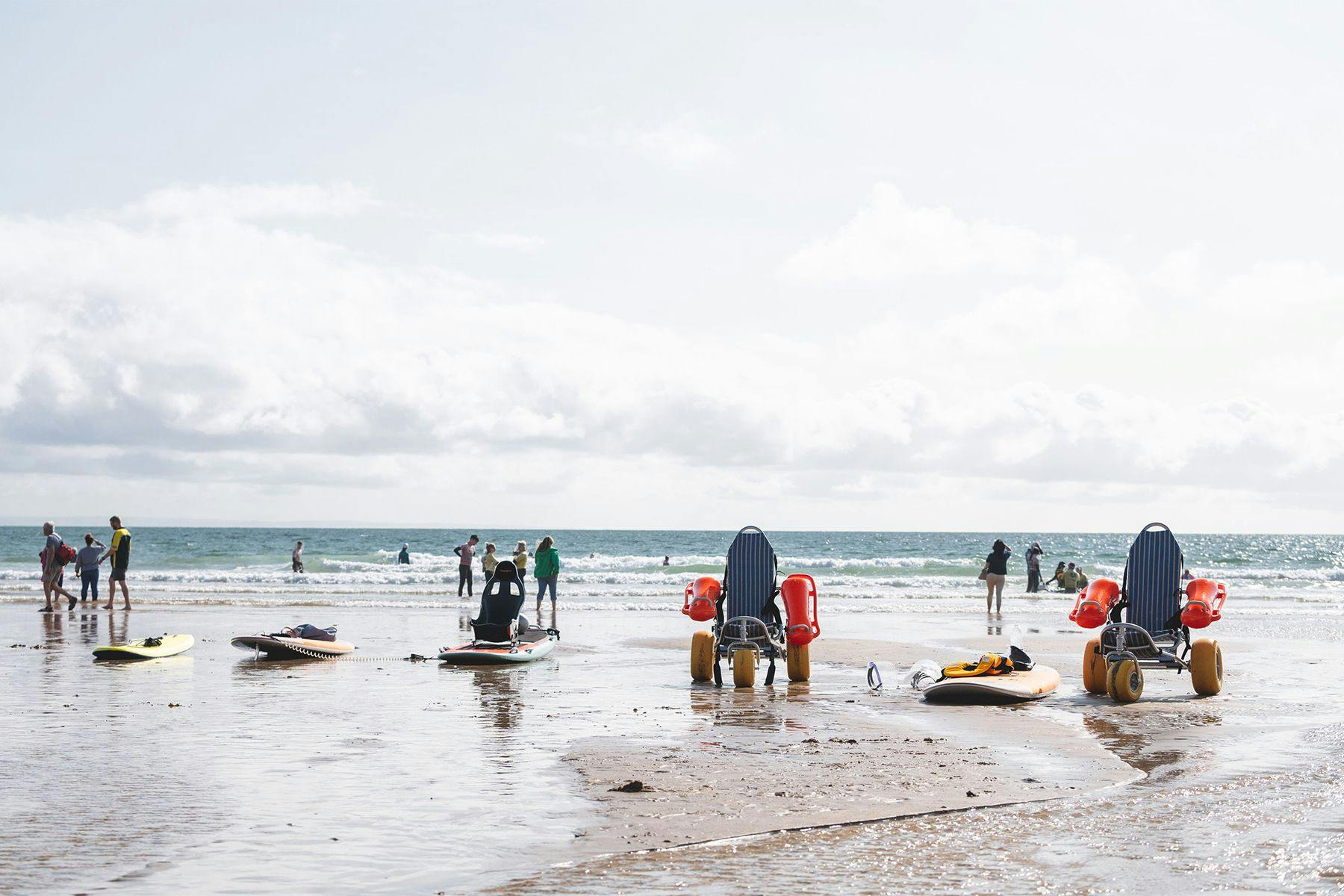
According to Gibbs, the reasons why people suffering from ABI often don’t access their local communities and natural environments tend to be related to injury-induced barriers: from not feeling understood by fellow community members to not having the skills or the confidence to build social connections or simply not having the access or accessibility to natural blue and green spaces. Those living with ABI also tend to have a hard time engaging in physical exercise or leisure activities – which puts them at risk of sedentary behaviours – and often face difficulties returning to work – which results in a lack of opportunities for things like achievement and feeling of meaning and purpose in life.
“Social contact and feeling connected to others is really important for our health and wellbeing; we know that by now. Yet, from our clinical experience, the impact of social ties on health and wellbeing outcomes is under-appreciated within the UK health sector – which leads to missed opportunities for the welfare of these populations.”
With these issues in mind, Gibbs and her team sought to create the opportunity for ABI patients to experience the benefits of their local natural environments as part of neurorehabilitation. When seeking organisations with the resources to set up a nature-based group therapy, two of their team members, Abigail Barker-Smith and Jack Jarman, who were already keen surfers, mentioned Surfability UK – a Community Interest Company using surfing experiences to promote wellbeing for individuals with additional needs. “We were interested in the clinical application of surfing as a therapy in the context of stroke and ABI,” says Gibbs. “And when we suggested it as a potential opportunity to pursue, it ticked all the boxes.”
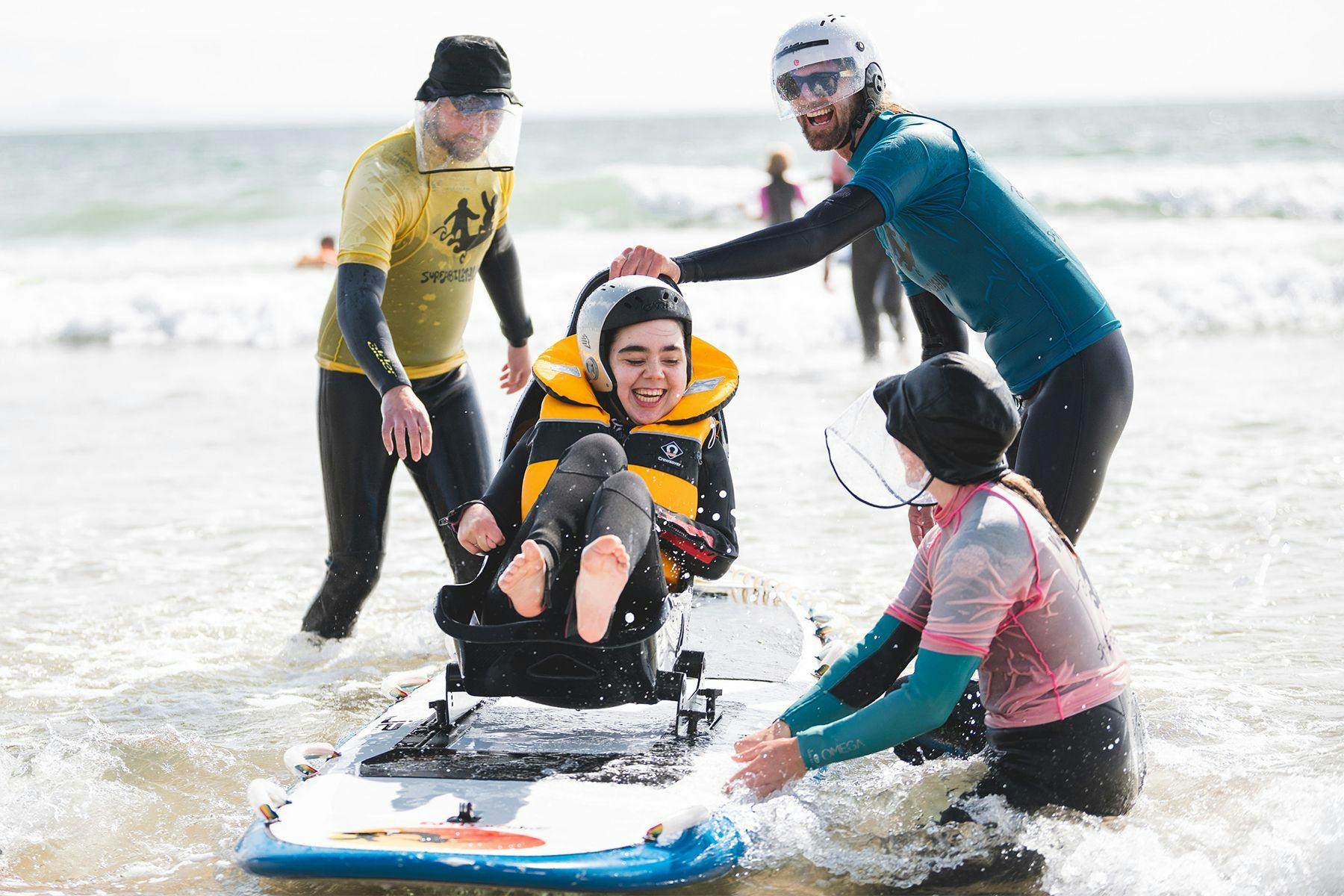
Led by Surfability UK surf instructors with the help of volunteers and Community Neurorehabilitation Service (CNS) therapy staff from a local hospital, the programme ran as a five-week intervention between July and October, from 2018 through to 2020. Sessions took place once a week at Caswell Bay, South Wales, and were carefully designed to help participants navigate through difficult situations and feelings by focusing on positive experiences such as being in the water and belonging to a group. Besides learning how to ride waves, participants were encouraged to set informal goals, mostly associated with psycho-social outcomes and opportunities, like socialising with new people and learning about the experiences of other ABI survivors. Fifteen participants, all of whom reported struggling to come to terms with their diagnosis, agreed to participate in a service evaluation, giving feedback about their experience to further inform future interventions. Gibbs and her team then coded interview transcripts and synthesized the main features of the dataset into a theme-based narrative.
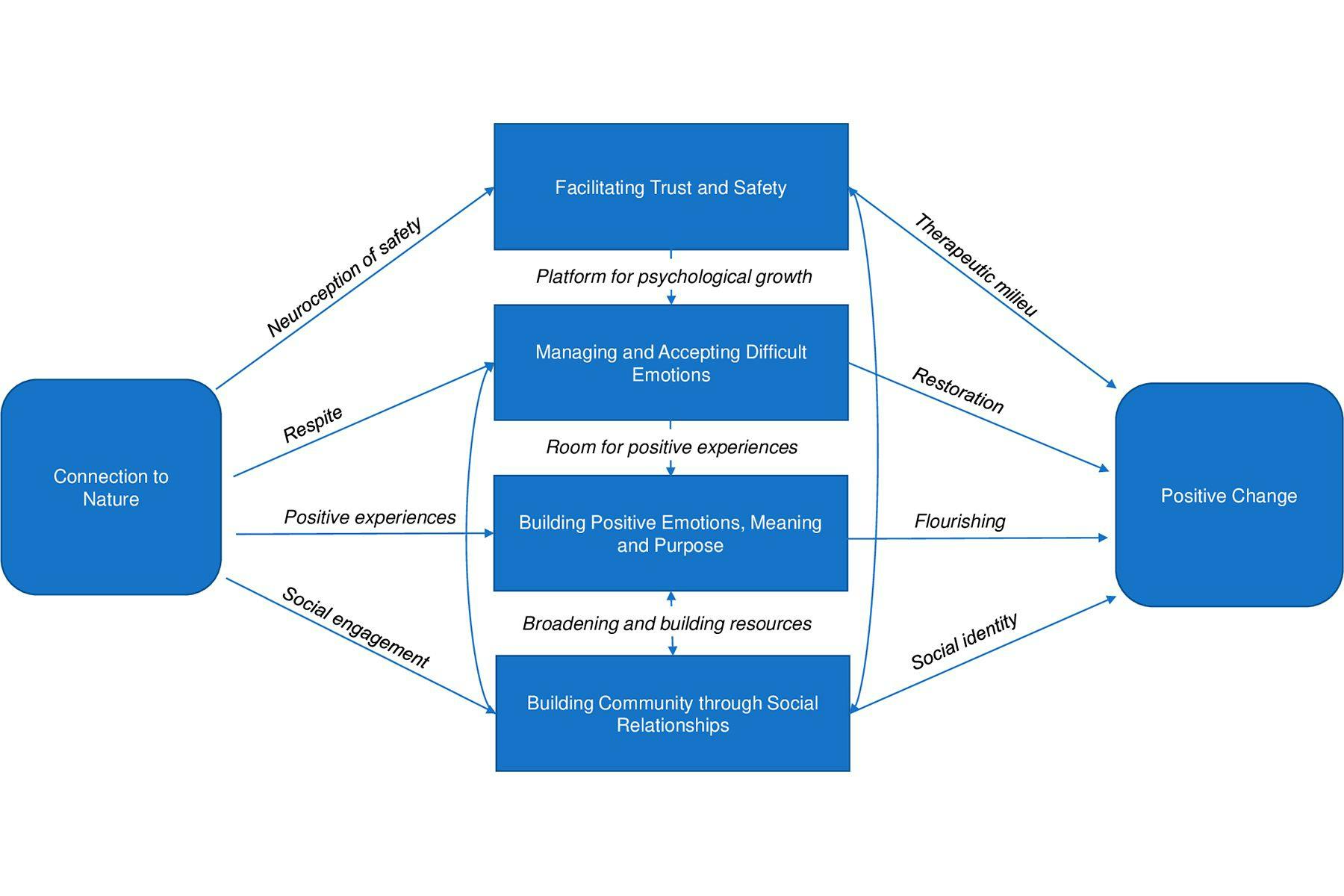
A proposed conceptual model for the benefits of surf therapy in people living with acquired brain injury, illustrating potential relationships between the six overarching themes identified in the research and potential underlying mechanisms.
When asked about the results, Gibbs says that the findings relating to Contact with nature were congruent with the existing literature and, as such, in line with their expectations; after all, the benefits of nature immersion was one of the key reasons they chose to harness the power of blue spaces for this neurorehabilitation programme. Facilitating trust and safety, though noticed and mentioned by participants as a fundamental component of the therapy, was also expected, what with providing a safe and supportive therapeutic environment being of the essence in neurorehabilitation and something the clinical team was really adept at. Managing and accepting difficult emotions, on the other hand, caught the attention of Gibbs and her team. Several studies have shown that the focus required when being in the sea can generate a sense of respite, yet they didn’t expect for surfing – or the ‘unpleasant’ experiences involved in surfing, such as falling off the board – to help facilitate feelings of acceptance as much as they did. “The beauty of the Surfability intervention is that the dynamic nature of the tide, wind and sea and the challenging environment means that those new to surfing – and especially stroke and brain injury survivors – experience difficult thoughts and emotions in that very moment – and the clinicians are right there with them to support them through it,” emphasises Gibbs. “I can’t say whether surfing would have facilitated acceptance without the support of the clinicians in this population, but activities such as surfing might allow people to see or experience how difficult emotions can actually lead to the experience of positive emotions. It might be hard dealing with falling off the board while learning, but doing so means you get to experience the positive emotions facilitated by surfing too.”
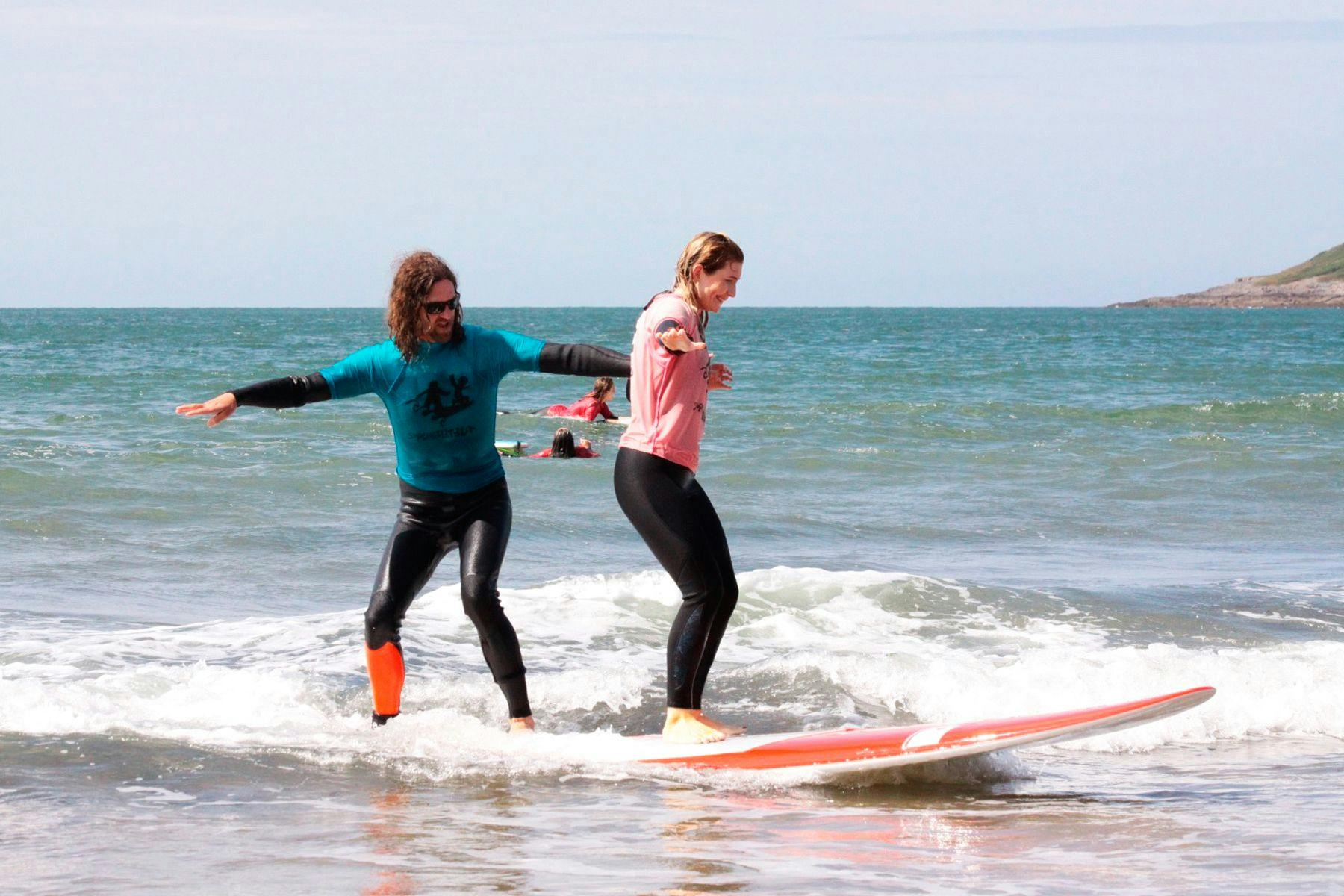
Our psychological wellbeing is closely tied to our sense of purpose, and the fact that participants reported such experiences makes Positive emotion, meaning and purpose a theme Gibbs and her team aim to cultivate in future interventions. The group-based nature of Surfability UK also helped to foster a sense of connection, belonging and community, thus forming the Building community through social connection theme. According to Gibbs, having opportunities to connect and share with other people who have similar experiences is a common issue raised by stroke and brain injury survivors. ABI patients often say that other people – including their friends, family and even specialised clinicians – will never be able to fully understand what they have or are going through. Yet being in an open, safe, and calm environment such as a coastal setting can help people to be open with one another, therefore supporting personal disclosures and connectedness. Finally, the fact that immersing ABI survivors in their natural ecologies created such unique and authentic opportunities for Positive change is, as Gibbs puts it, “truly amazing.” And whilst they can’t say for sure how sustained these changes were, she cites the case of a former participant becoming a volunteer as an example of how the intervention broadened horizons for some people. “Despite experiencing significant fatigue afterwards, they do it [surf] because they love the feeling of being on the surfboard and find value in supporting others and helping them to live well with their condition,” says Gibbs. “This is a prime example of how water-based activities like surfing can connect people to themselves, others, and to nature, and present opportunities for ABI survivors to rebuild a meaningful life after injury.”
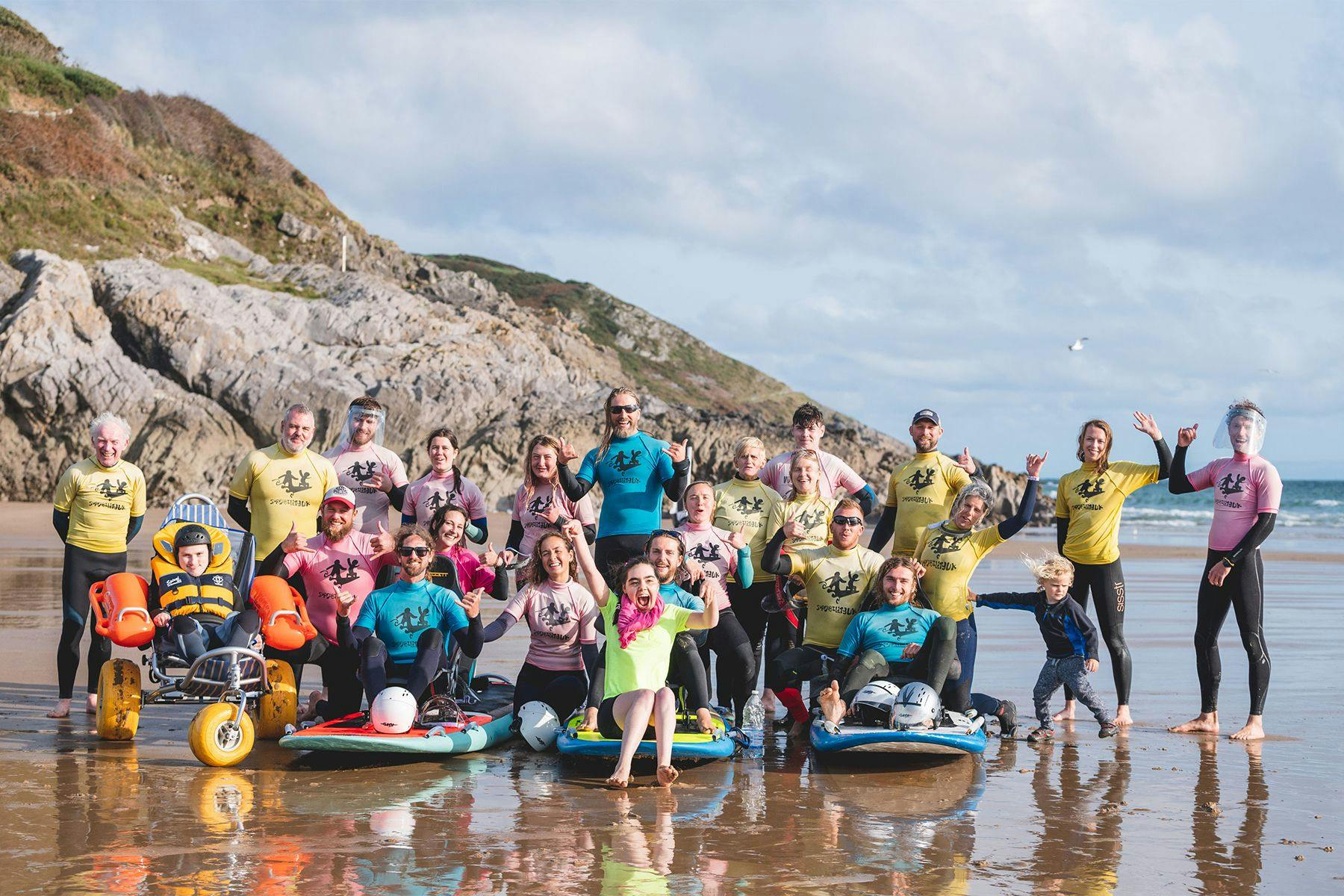
Besides reinforcing the therapeutic aspects of surfing interventions, the study demonstrates that neurorehabilitation doesn’t have to be clinic-based to be effective. It also shows that nature presents unique opportunities for ABI survivors that can’t always be created in an artificial or clinical setting, thus paving the way for more clinical services to harness the benefits of nature as therapy. “Over and above everything, Surfability – as a group-based, nature surfing intervention – nourished the belief that, despite being a little bit broken in some places, participants were still capable of achieving and experiencing wellbeing,” highlights Gibbs. “And for many, that experience gives them a valid reason for being alive.”
**********
The author and Surf Simply would like to thank Katie Gibbs for her assistance with the article, and Surfability UK and Celf Calon for providing us with the images.
Reference: Gibbs K, Wilkie L, Jarman J, Barker-Smith A, Kemp AH, Fisher Z (2022) Riding the wave into wellbeing: A qualitative evaluation of surf therapy for individuals living with acquired brain injury. PLoS ONE 17(4): e0266388. https://doi.org/10.1371/journal.pone.0266388